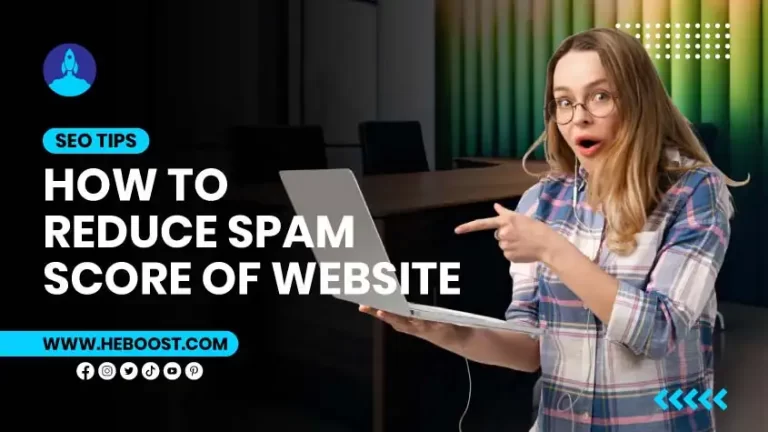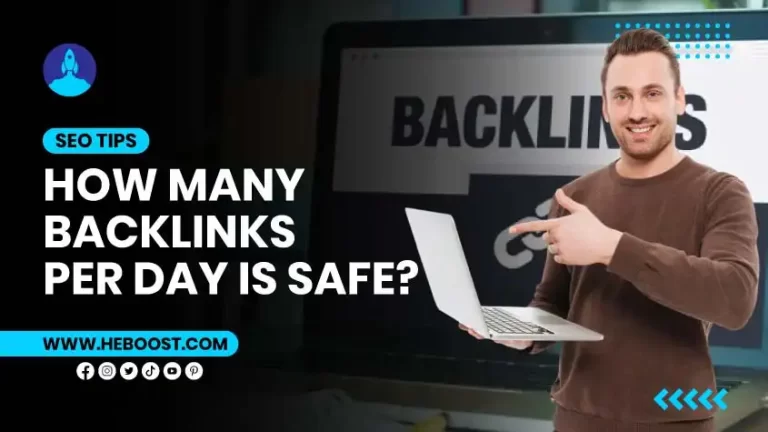Easy SEO Wins: Get Backlink from Wikipedia Now!
Hello, SEO wizards and website warriors! Today, we’re on a mission to unravel the mysteries of securing that coveted Wikipedia backlink. And trust us, we’ve been around the SEO block for more than five years, so we know a trick or two. Why Wikipedia, you ask? It’s like getting a high-five from the internet’s most brilliant scholar. It’s not just about getting a backlink; it’s about earning a badge of honour that tells the world – and search engines – that you’re a credible source.
In the ever-evolving landscape of SEO, backlinks remain a cornerstone of success. They’re not just links; they’re digital pathways that lead curious minds directly to your content. And when those pathways originate from a titan like Wikipedia, you’re not just drawing traffic but building an expressway to your site. So, let’s roll up our sleeves and dive into the art of earning Wikipedia backlinks without ruffling any feathers!
Are Wikipedia Backlinks Good For SEO? Absolutely!
“Are Wikipedia backlinks good for SEO?” That’s a question we get asked a lot. And it’s a valid one. After all, in the grand scheme of SEO strategies, not all backlinks are created equal. But here’s the deal: Wikipedia backlinks are like gold in SEO. Why? Because Wikipedia is the internet’s encyclopedia, a hub of knowledge trusted by millions. When you get a backlink from Wikipedia, it’s not just a link; it’s a seal of approval.
Let’s break it down. Search engines love Wikipedia for its reliable, well-researched content. Search engines infer your content must be valuable and trustworthy when linked to such a site. It’s like getting a thumbs-up from a respected professor in your field. This endorsement enhances your website’s authority, improves search rankings, and drives more traffic. Plus, Wikipedia pages often rank high in search results, meaning your backlink gets more eyeballs and potential clicks. It’s a win-win!
Recommended Reads: Web Jungle Guide: How to Get Do Follow Backlinks Easily!
Benefits of Building Wikipedia Backlinks
Building backlinks from Wikipedia isn’t just about boosting your SEO; it’s about joining an elite club of credible sources. Think of it as being invited to an exclusive party where all the guests are industry leaders and knowledge lovers. This invitation alone speaks volumes about your website’s quality and reliability. But there’s more to it than just bragging rights.
Firstly, Wikipedia backlinks increase your visibility. It takes a lot of work to stand out in the crowded internet space. But a Wikipedia backlink is like having a spotlight shining directly on your website. It’s not just any spotlight; it’s visible across the vast landscape of the internet, catching the attention of both users and search engines. Secondly, these backlinks can significantly drive traffic to your site. Imagine tapping into Wikipedia’s massive user base. You can directly channel a stream of interested visitors to your content with the proper backlink. It’s like opening a direct line between your site and a global audience hungry for knowledge.
And let’s remember the boost in credibility. Being linked from Wikipedia is akin to having your work cited in a scholarly article. It tells your visitors that you’re a trusted authority in your field. This trust is invaluable in building a loyal audience and establishing your brand’s reputation online. In the long run, this can lead to more organic backlinks, social shares, and an engaged community around your brand.
Stay tuned for more insights as we delve deeper into how you can effectively and ethically secure backlinks from Wikipedia!
Recommended Reads: 5 Amazingly Free Backlink Checkers to Uncover Secrets
How to Get Backlink from Wikipedia – A Step-by-Step Guide
Securing a backlink from Wikipedia might seem like climbing Mount Everest, but fear not! It’s more like a strategic hike where preparation and smart moves matter. Let’s walk through the steps, ensuring you’re equipped for success. Remember, it’s about adding value, not just snagging a link.
Research is Key
Start by donning your detective hat and doing some thorough research. Look for Wikipedia articles relevant to your niche. This isn’t just about finding any article; it’s about finding the right one. You’re seeking a spot where your content can shine as a helpful addition. This is where your expertise comes into play. With over five years in the game, we know the importance of aligning your link with content that complements Wikipedia’s article and your website.
Once you’ve identified potential articles, it’s time to scrutinize them. Are there sections marked “citation needed”? Do they have deadlinks? These are your golden opportunities. They’re like invitations to add your knowledge and, in the process, gain that valuable backlink.
Create Valuable Content
Your website content must be nothing short of stellar. It should be the answer to what Wikipedia’s missing. We’re talking about content that’s not just good but great. It needs to be informative, well-researched, and, most importantly, relevant to the Wikipedia article you’re targeting. This isn’t a sales pitch; it’s your chance to showcase your expertise and contribute to the world’s largest encyclopedia.
Here’s a pro tip: tailor your content to address the specific needs of the Wikipedia article. This increases the chances of your link being accepted and appreciated by Wikipedia editors and readers. Your content should be the missing puzzle piece, perfectly fitting into the Wikipedia article’s narrative.
Edit With Care
Now, for the actual linking – proceed with caution and respect. Editing a Wikipedia article is about something other than leaving your mark; it’s about enhancing the existing content. When you add your link, ensure it genuinely improves the article. Be subtle, relevant, and helpful. This is not the time for a hard sell; it’s time to be a generous knowledge giver.
Remember, Wikipedia’s editors are guardians of quality. They can spot a self-serving link a mile away. Your addition should be so seamless and valuable that it was always meant to be there. It’s like being a polite guest at a dinner party – you want to be memorable for all the right reasons.
Monitor and Update
The Wikipedia landscape is dynamic, with edits happening every minute. Once your link is up, don’t just walk away. Keep an eye on it. Be prepared to make updates or defend your link if necessary. This isn’t a set-it-and-forget-it deal. It’s an ongoing commitment to maintain the relevance and quality of your contribution.
So, there you have it – your roadmap to securing that Wikipedia backlink. Next, we’ll explore a clever way to get Wikipedia backlinks without sweating too much. Stay tuned for more insider tips!
Recommended Reads: How to Reduce Spam Score of Website: Goodbye to Spam!
How to Get Wikipedia Backlinks Without Breaking a Sweat
So, you want to secure those Wikipedia backlinks but prefer a path with fewer bumps? You’re in luck! There’s a strategy that’s both effective and community-friendly. It’s about being smart, not hardworking. Let’s dive into this favourite approach among seasoned SEO pros like us.
The Art of Dead Link Replacement
Wikipedia, vast as it is, isn’t immune to the occasional broken link, and here’s where you can shine. These dead links are like open doors waiting for you to walk through with your valuable content. The trick is to replace these dead links with links to your website, but here’s the catch – your content must be a perfect fit. It should be like finding a lost puzzle piece that completes the picture. This is not about promoting your site but enhancing Wikipedia’s content with your expertise.
The process is simple yet requires finesse. Start using tools like WikiGrabber to find dead links relevant to your niche. Next, ensure your content matches or exceeds the quality and relevance of the source. This way, when you propose your link as a replacement, it feels less like a cold call and more like a helping hand.
Mastering Citation Needed Sections
Another gem of an opportunity lies in Wikipedia’s citation needed sections. These are like calls for help, and you’re the hero with the answers. Wikipedia thrives on verifiable information, and these sections lack just that. You’re in for a win if you have content that can substantiate these claims. But remember, your content must be authoritative and factual. It’s like being asked to testify in court – your word must hold weight.
Approach these sections with a sense of duty. You’re not just adding a link; you’re contributing to the body of knowledge that millions rely on. It’s a responsibility and a privilege. By providing citations from your website, you’re gaining a backlink and establishing yourself as a credible source in your field.
Navigating Wikipedia’s Guidelines
Now, it’s crucial to remember that Wikipedia has strict guidelines for a reason. They’re the guardians of content integrity. Before making any edits, familiarize yourself with these guidelines. Understand what Wikipedia values and respects in contributions. This isn’t about bending the rules; it’s about playing an integral part in the community.
Remember, Wikipedia is not your advertising platform. It’s a respected knowledge repository. Your contributions should always prioritize the enrichment of Wikipedia’s content. By doing so, you’re earning a backlink and the respect of the Wikipedia community.
In conclusion, getting Wikipedia backlinks can be a smooth process. With the right approach, you can contribute meaningfully to Wikipedia while securing valuable backlinks for your website. It’s a strategy that benefits everyone – a true hallmark of competent SEO practice.
Recommended Read: What is Web 2.0 Backlinks? A Beginner’s SEO Toolkit
Consequences of Abusing Wikipedia Backlinks
Now, let’s talk about a severe aspect of using Wikipedia for backlinks – responsibility. It’s like having a superpower; with great power comes great responsibility. Abusing Wikipedia backlinks can lead to consequences that could tarnish your site’s reputation and undo all your hard SEO work. Let’s dive into why playing by the rules is good manners and essential for your long-term SEO strategy.
The Backlash of Misuse
Think of Wikipedia as a community garden. Everyone is welcome to contribute, but you’ll quickly be shown the door if you start planting weeds. Misusing Wikipedia for backlinks is akin to this. If you spam Wikipedia with links to your site without adding real value, you risk more than just having your link removed. You could get your website blacklisted. Any future attempts to link from Wikipedia could be automatically flagged and removed.
But it’s not just about Wikipedia’s reaction. Search engines, like Google, are becoming more competent at recognizing and penalizing manipulative backlink practices. A sudden spike in backlinks from Wikipedia, especially ones that don’t seem contextually relevant or valuable, could raise red flags. This could lead to a drop in your search rankings or, in severe cases, a penalty from search engines.
Maintaining the Integrity of Your Site
Your website’s integrity is like your online reputation hard to build, easy to break. Abusing Wikipedia backlinks can damage this reputation. Remember, short-term gains can lead to long-term pains in the world of SEO. Creating an organic, credible, and sustainable backlink profile is crucial. The goal is to be seen as an authority in your field, not a rule-bender.
When you use Wikipedia responsibly, you’re not just avoiding penalties but building a foundation of trust with Wikipedia and your audience. This trust is invaluable. It leads to organic growth, repeat visitors, and a more substantial online presence.
A Sustainable Approach to Wikipedia Backlinks
The sustainable approach to using Wikipedia for backlinks is simple to contribute positively. Focus on adding value to Wikipedia’s articles, be honest in your intentions, and prioritize the quality of your contributions over the quantity of your links. This approach might take more time and effort, but it pays off in the long run.
By being a responsible member of the Wikipedia community, you’re securing backlinks and building a reputation as a credible and valuable source. This reputation extends beyond Wikipedia, influencing how your audience and search engines perceive your website.
In conclusion, the key to successful Wikipedia backlinking is to play fair. Respect the platform, contribute meaningfully, and remember that integrity and credibility are your best allies in the world of SEO. Abusing Wikipedia backlinks can lead to consequences no website wants to face, so tread carefully and think long-term.
Frequently Asked Questions
Let’s address some common questions as we wrap up our journey into Wikipedia backlinks. After all, in our five-plus years in the SEO field, we’ve heard them all! Here are answers to four FAQs that might be on your mind.
Q1: Can I add multiple backlinks from Wikipedia to my site?
A: You can have multiple backlinks from Wikipedia to your site, but there’s a catch. It’s all about balance. Think of it as seasoning a dish – too little, and it’s bland, too much, and it’s overwhelming. Focus on adding backlinks where they are most relevant and valuable. Quality trumps quantity every time. So, sprinkle those backlinks judiciously and watch your SEO flavour enhance!
Q2: How quickly will I see results from Wikipedia backlinks?
A: Ah, the age-old question of timing. SEO, by nature, is more of a slow cooker than a microwave. The impact of Wikipedia backlinks will take time. It could take a few months to see a noticeable difference in your website’s search rankings and traffic. Patience is key here. Remember, good things come to those who wait – and, in the case of SEO, to those who work smartly and persistently.
Q3: Do Wikipedia backlinks help with local SEO?
A: They certainly can! Wikipedia backlinks can be a boon for local SEO, especially if your site is cited as a source for local information or events. This can enhance your visibility in local search results and position you as an authority in your local area. It’s like being the go-to person in your neighbourhood for all things related to your niche. So, yes, Wikipedia backlinks can boost your local SEO.
Q4: Should I hire a professional to get Wikipedia backlinks?
A: If you feel unsure about navigating Wikipedia’s guidelines or don’t have the time to dedicate to this task, hiring a professional might be a wise choice. Look for someone with experience in ethical SEO practices and a track record of successful Wikipedia contributions. They can be the skilled navigator you need to navigate the intricate Wikipedia backlinking world. However, ensure they adhere to Wikipedia’s policies to avoid any backfire.
You have answers to some of the most burning questions about Wikipedia backlinks there. Whether you’re a seasoned SEO professional or just dipping your toes in, remember that Wikipedia backlinking is an art that requires patience, precision, and a commitment to quality. Happy backlink hunting!
And that’s a wrap on our detailed guide to getting backlinks from Wikipedia. We hope this journey has been enlightening and empowering. Go forth, apply these insights, and watch your SEO soar. Remember, knowledge is power in digital marketing, and you’re now armed with some of the best!







